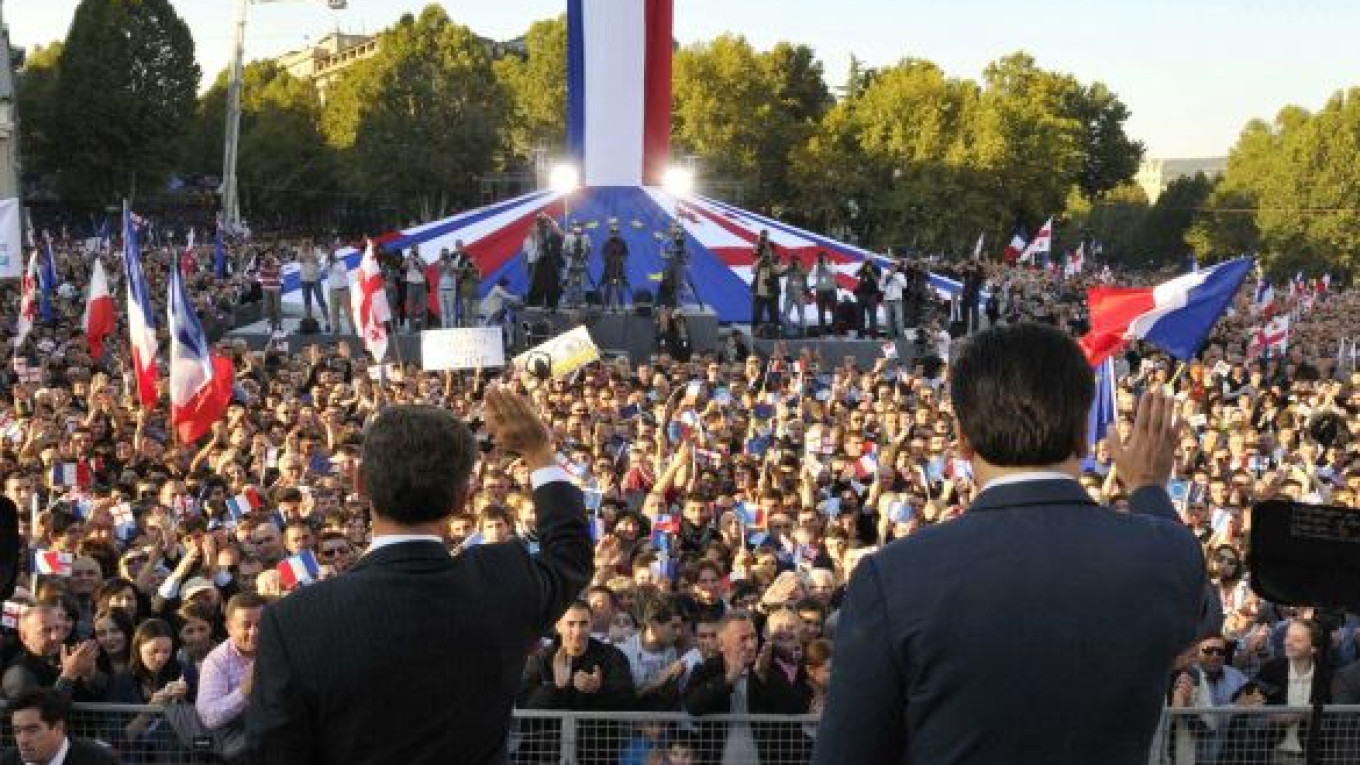TBILISI, Georgia —? French President Nicolas Sarkozy accused Russia before a cheering crowd in Georgia on Friday of violating the ceasefire that ended the 2008 war in the Caucasus and assured his audience that the door to the European Union remains open.
Sarkozy addressed some 30,000 people packing Freedom Square in Georgia's capital, Tbilisi, his last stop on a two-day Caucasus tour that also took him to Armenia and Azerbaijan.
He said Russia had flouted the truce he brokered to end its five-day war with Georgia by building up forces in the breakaway regions of South Ossetia and Abkhazia instead of withdrawing to pre-conflict positions.
"France will not resign itself to a fait accompli," he said, with Georgian President Mikheil Saakashvili looking on. "I would like to reiterate here my commitment to watch over the enforcement of the accord."
Russia strengthened its control over South Ossetia and Abkhazia in the brief war and recognized them as independent nations afterward, clouding Saakashvili's hopes of bringing Georgia into NATO and the EU.
Sarkozy said Georgia was "free to express its aspirations to join NATO, if it is the will of the people," as well as "to draw closer to the European Union and one day join."
"When I am in Tbilisi, I feel I am in Europe," he said.
Sarkozy also pleased his hosts in Armenia, warning Turkey that it might soon become illegal in France to deny that the mass killing of Armenians in the Ottoman Empire in 1915 was genocide. He called on Turkey to make a "gesture of reconciliation" and recognize the killings as genocide.
If it does not, he said, France "will consider whether it must go further to amend its legislation to penalize this denial."
He urged Armenia and Azerbaijan to resolve their dispute over Nagorno-Karabakh, a mainly Armenian-populated enclave in Azerbaijan.
"The time has come to take the risk of peace," Sarkozy said at a meeting with Armenian President Serzh Sarksyan.
"Armenians, Azeris and Turks: You must choose this path. There is no other, it is the path of peace," he said.
A Message from The Moscow Times:
Dear readers,
We are facing unprecedented challenges. Russia's Prosecutor General's Office has designated The Moscow Times as an "undesirable" organization, criminalizing our work and putting our staff at risk of prosecution. This follows our earlier unjust labeling as a "foreign agent."
These actions are direct attempts to silence independent journalism in Russia. The authorities claim our work "discredits the decisions of the Russian leadership." We see things differently: we strive to provide accurate, unbiased reporting on Russia.
We, the journalists of The Moscow Times, refuse to be silenced. But to continue our work, we need your help.
Your support, no matter how small, makes a world of difference. If you can, please support us monthly starting from just $2. It's quick to set up, and every contribution makes a significant impact.
By supporting The Moscow Times, you're defending open, independent journalism in the face of repression. Thank you for standing with us.
Remind me later.


